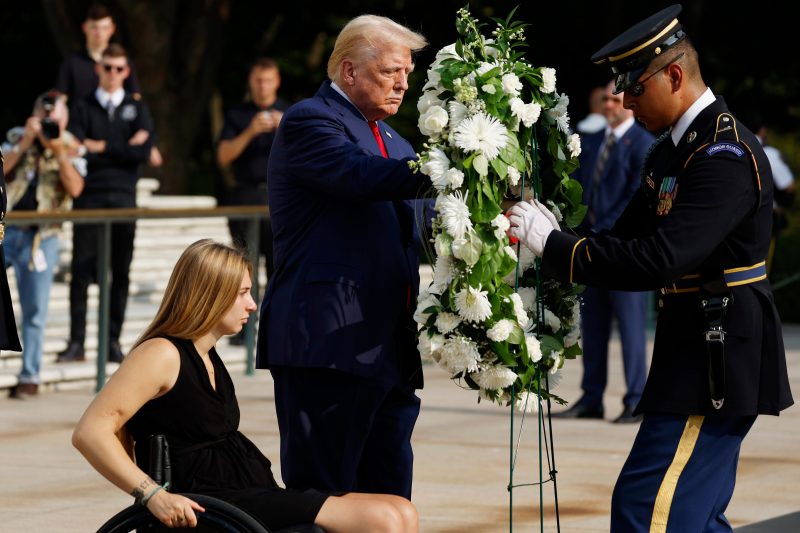
Trump vs Harris: The Power Struggle Over Military Might
As the political landscape in the United States continues to evolve, recent attention has shifted to the ongoing contest between Former President Donald Trump and Vice President Kamala Harris about each side’s approach to military strength. This contest has sparked a vigorous debate about policy, positioning, and the essence of American power.
Donald Trump, the 45th president of the United States, has been widely known for his longstanding commitment to what he calls a peace through strength strategy. Throughout his term, Trump has placed significant emphasis on building up the US military. He expanded defense spending, increased the size of the military, and invested in state-of-the-art military technology. As part of his broader strategy, the former president also conveyed a willingness to unleash that military power when necessary, marked by targeted strikes like the one that eliminated Iran’s General Qassem Soleimani.
The assertive and occasionally unpredictable approach of the Trump administration on military matters has met with both criticism and praise. Supporters argue that the bolstering of military capabilities was a paramount reassurance for American allies and a formidable deterrent to potential adversaries. Critics, on the other hand, have perceived Trump’s methods as an impulsive form of militarism that is more likely to encourage conflicts than prevent them and undermine diplomatic relationships along the way.
On the other spectrum, Vice President Kamala Harris brings a fresh perspective into the equation. Her approach seems to veer away from raw military might and gears instead towards a more nuanced understanding of strength, one that incorporates diplomatic relations, economic power, and American values into the mix. Though still an advocate for a robust defense, Harris’s stance advocates for greater caution in the use of military force.
Harris asserts that military strength is not solely about sheer force or numerical superiority, but also about the strategic and judicious application of that power. Her perspective indicates that military strength is also about harnessing international support, exerting diplomatic pressure, and demonstrating American values globally. From this viewpoint, the ultimate role of the military should not only be about deterring and waging wars but also preserving peace, protecting human rights, and fostering global stability.
Under Harris’s view, investing in diplomacy, international partnerships, and soft power initiatives should go hand-in-hand with military investments. She supports a balanced approach where America’s military dominance is matched by its leadership in diplomacy and its commitment to international norms and laws.
The debate between these two political figures showcases a clear difference in understanding and applying military strength. President Trump’s approach argues for a more orthodox interpretation, where military strength is given the utmost priority, while Vice President Harris supports a holistic view – an approach that subscribes to the concept of comprehensive national power, which includes military prowess as one aspect of a layered strategy.
Ultimately, this political contest concerning military strengths gives Americans the chance to reflect on their country’s role in global affairs. Whether America should rely solely on its military might or take a more balanced approach that includes diplomacy, remains an ongoing conversation within the American political landscape. This discourse is a testament to the dynamic nature of democracy that values a variety of viewpoints with regard to national security and foreign policy decisions.
